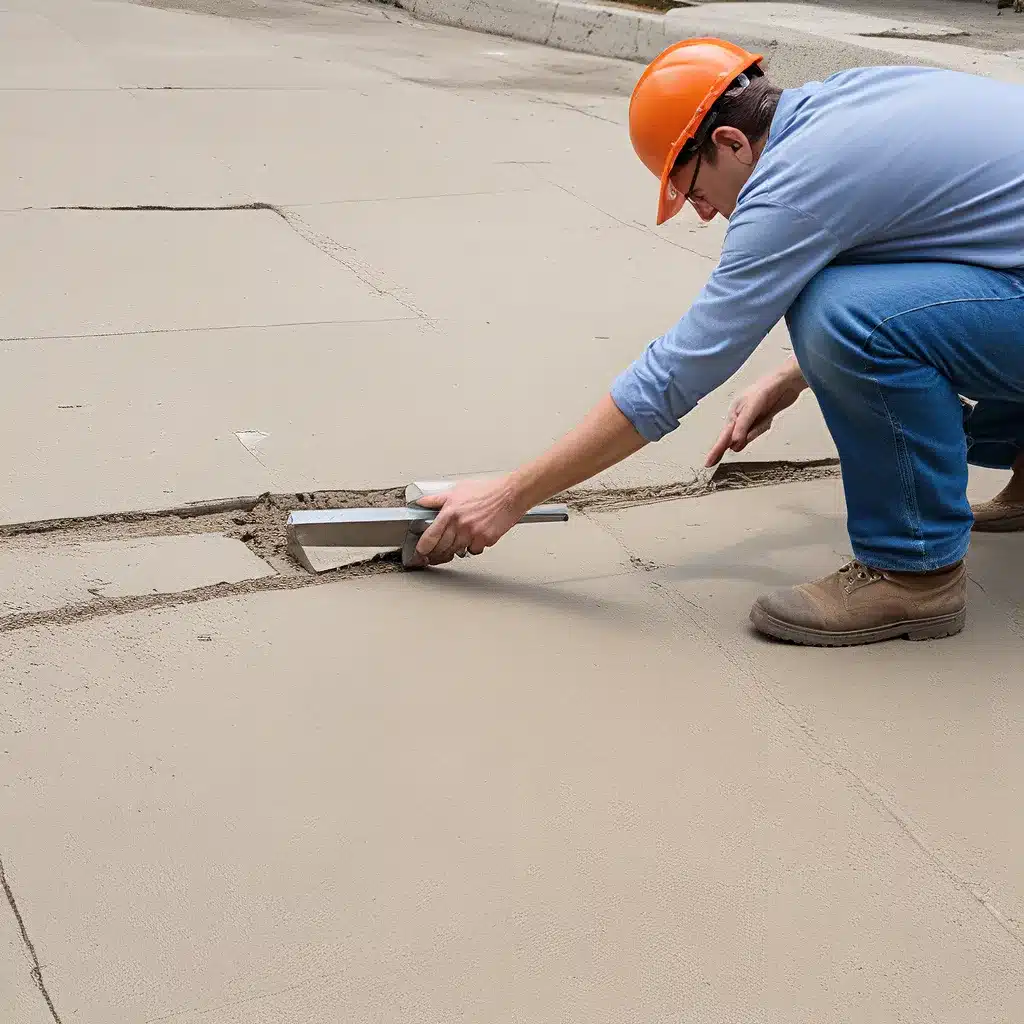
Concrete repair and maintenance are essential for preserving the structural integrity and aesthetic appeal of your property in Columbus, Ohio. Whether you’re dealing with cracked sidewalks, deteriorating driveways, or spalling basement floors, navigating the permit process can be a crucial first step before tackling any concrete work.
Understanding the Permit Requirements
In Columbus, any planned work involving concrete, regardless of whether it’s new construction, alterations, or a change in occupancy, requires a building permit with plan review. This ensures that the proposed work complies with the Ohio Building Code and the Residential Code of Ohio.
The permit process in Columbus is designed to protect both homeowners and property owners. By reviewing the plans and specifications beforehand, the Building and Zoning Services (BZS) Department can identify any potential issues and ensure that the work is carried out safely and per local regulations.
Obtaining a Permit for Concrete Repairs
The process of obtaining a permit for concrete repairs in Columbus can be straightforward, but it’s important to familiarize yourself with the requirements. Here’s a step-by-step guide:
1. Determine the Scope of Work
First, you’ll need to assess the extent of the concrete repairs required on your property. This will help you determine the necessary permits and any additional documentation or approvals that may be needed.
For example, if you’re resurfacing an existing driveway or paving a new parking pad, you’ll need to obtain zoning clearance to ensure the work complies with the Columbus Zoning Code. Conversely, if you’re simply repaving an existing driveway, zoning clearance may not be required.
2. Collect the Required Documentation
Once you’ve determined the scope of work, you’ll need to gather the necessary documentation to submit with your permit application. This typically includes:
- Building Permit Application: A completed application form that provides details about the proposed work.
- Homeowner’s Permit Affidavit: If you’re planning to do the work yourself, this form will need to be attached to the building permit application.
- Plans and Specifications: Two sets of the plans and specifications for the concrete work, including any structural or civil engineering drawings.
3. Submit the Permit Application
You can submit your permit application in person at the Building and Zoning Services office or online through the Citizen Access Portal. Be sure to have all the required documents ready and payment information available, as the fees must be paid before the application can be processed.
4. Plan Review and Approval
Once your permit application has been submitted, it will undergo a plan review process to ensure compliance with the appropriate building codes and regulations. This process typically takes about one week for 1-, 2-, and 3-family residential projects.
If the plans are approved, you’ll receive an email with instructions on how to retrieve your plan approval letter, building permit, and stamped approved plans. If the plans require corrections or additional information, you’ll receive a correction letter, and the plans will be placed on hold until the necessary changes are made.
Scheduling Inspections
After obtaining your permit, you’ll need to schedule the required inspections for your concrete repair project. This can be done online through the Citizen Access Portal or by phone. Inspections are typically scheduled for the next business day or an upcoming business day of your choice.
Each permit is issued with a base number of inspections, also known as trips. These trips are specific to the permit, meaning that a plumbing inspection will be scheduled using the plumbing permit number, which will debit an inspection trip from that permit. Once the balance of trips is zero, additional trips must be purchased before an inspection can be scheduled.
Navigating Zoning and Other Requirements
In addition to the building permit process, there may be zoning or other agency approvals required for your concrete repair project in Columbus. Here are a few key considerations:
Zoning Clearance: If you’re expanding a driveway or paving a new parking pad, you’ll need to obtain zoning clearance to ensure the work complies with the Columbus Zoning Code. This is typically obtained as part of the final site compliance plan review process.
Historic Districts: If your property is located within a historic district, such as the Downtown District, German Village, or Italian Village, you may need to obtain a Certificate of Appropriateness from the relevant review commission before submitting your permit application.
Health Department Approvals: If your concrete repair project is related to a commercial or public swimming pool, you’ll need to obtain approval from the Franklin County Health Department in addition to the building permit.
Staying Compliant and Avoiding Penalties
It’s important to note that working without a permit in Columbus can result in additional fees and penalties. The “Working Without Permit” fee is charged on top of the standard permit cost, so it’s crucial to obtain the necessary permits before starting any concrete repair work.
Likewise, failing to schedule required inspections or completing the work within the permit’s timeframe can also lead to issues. Permits in Columbus are valid for 12 months from the date of plan approval, and work must commence within that period. If there are delays or suspensions of work for more than 6 months, you may need to request a permit extension to avoid complications.
By understanding the permit process and following the necessary steps, you can ensure that your concrete repair project in Columbus is completed safely, legally, and in compliance with all local regulations. This not only protects you as the property owner but also helps maintain the integrity and safety of your community.
For more information or assistance with the permit process, be sure to contact the Columbus Building and Zoning Services Department or visit their website at columbus.gov/bzs.


